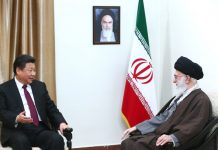Context
 This is a second article as part of the series on preparing for the future. Towards this goal, a challenge identified in the prior article had to do with spoting new patterns. This is followed by attempts to understand the implications, for which it is equally essential to comprehend the causes that produced a new trend. It is only after this, can an entity arrive at the stage of formulating an appropriate response, and begin adapting to the emerging future or attempt to shape it. Merely following the process in such a manner does not guarantee quality results. At each one of these steps, mistakes can be made while polluting the outcome.
This is a second article as part of the series on preparing for the future. Towards this goal, a challenge identified in the prior article had to do with spoting new patterns. This is followed by attempts to understand the implications, for which it is equally essential to comprehend the causes that produced a new trend. It is only after this, can an entity arrive at the stage of formulating an appropriate response, and begin adapting to the emerging future or attempt to shape it. Merely following the process in such a manner does not guarantee quality results. At each one of these steps, mistakes can be made while polluting the outcome.
From the vantage point of South and Central Asia, Middle East, and North Africa, the overarching factor that will define the future of these regions will depend on how they understand the change being produced by the campaign against extremists, what led to it, and then formulating a response to it. At the same time, how the West and other global powers plan their next actions with respect to the present ground conditions, will determine if there is going to be peace or continuation of the conflict.
Resources and Approach
The developed world employs tremendous resources on spotting emerging trends and understanding the repercussions. Studying and understanding the future, whatever the motive, has become a source of great strength for it. On the other hand, there is a dearth of such organizations and expertise in other parts of the globe, especially in South and Central Asia, Middle East, and Africa.
This has resulted in a one-dimensional perspective and standardization of the approaches to identify and deal with many of the global challenges. Often this leads to flawed projections and misinterpretation of the underlying causes, leading to costly policy decisions. Irrespective of the way the world is politically organized presently, the study of nature reveals the fate of human race is inexplicably linked. This realization has served as a unifying factor and has brought the world together in dealing with environmental concerns and tackling threats such as those posed by the weapons of mass destruction. On the other hand, there is no shortage of issues and conflicts that are serving to be divisive and destabilizing. Often the differences stem from politicization of various conflicts and how different nations and cultures perceive emerging hazards and prospects.
The Vantage Point and War Against Extremists
From the vantage point of South and Central Asia, Middle East, and North Africa, the overarching factor that will define the future of these regions will depend on how they understand the change being produced by the campaign against extremists, what led to it, and then formulating a response to it. At the same time, how the West and other global powers plan their next actions with respect to the present ground conditions, will determine if there is going to be peace or continuation of the conflict.
The event of 9/11 led to the initiation of the campaign against terror. A coalition was formulated to deal with the menace and the goal of the alliance was to defeat and destroy the perpetrators of the attack. Little attention was paid to what caused the tragic event, and even when it was considered, policy changes have been elusive. At the same time, local allies have exhibited a lack of genuine comprehension on what has transpired ever since the campaign against terror started. A few of the leaders exploited 9/11 to gain credibility they otherwise lacked, some tyrannize political opponents and movements, and in other instances they used it to acquire military and economic assistance.
The Narrative
Moreover, these terror-inflicted nations have failed to develop a genuine narrative for why they are part of the campaign against extremists, which is further polarizing their societies between liberals, conservatives, and nationalists. With the liberals and minorities aligning with the West, the conservatives displaying sympathies for the religious zealous, and the nationalist becoming increasingly xenophobic in character. This schism has made developing consensus on any issue very difficult.
Expansion of War Theater
Since September 11, the campaign against extremism and terrorism has spread to many other parts of Middle East and North Africa and shows no sign of receding. NATO and US have often justified the kinetic approach that is premised on elimination of the Al Qaeda leadership and the irreconcilables, claiming it will cause the affiliates to settle. On the ground, however, the dynamics have been playing out differently; the elimination of the top leadership has not led to the weakening of the extremists and a new set of dangerous patterns have emerged.
Shiite Sunni Tussles, Arab Spring, and the Balance of Emerging and Established Powers
To avoid pressure in one area, extremists have moved from one place to the other. This has caused further cross-pollination of its deadly ideology while bringing in new recruits. Additionally, as the epidemic spread, it incorporated other conflicts that traditionally had other roots. For instance, the Shiite Sunni tussles across the core Islamic world have now also become entangled with the war against terror and the Arab Spring. Not only this, the Arab Spring and the campaign against extremists have also gotten tied up with the tussles of the emerging and established powers.
This was recently demonstrated in the case of Syria where Russian assistance played a key role in developing a deal over its chemical weapons, without which NATO strike appeared imminent. The détente on Syria also helped in crafting an interim deal with Iran over its nuclear program. While NATO has often chosen the route of military intervention, emerging powers, especially Russia and China, have sided against foreign intervention in these conflicts, and this has complicated the operation of the UN Security Council.
Managing Security, Societal, and Economic Concerns
On the other hand, nations under pressure from the West to act against terrorists also became the target for supporting the campaign. Moreover, as the war progressively got worse, the deteriorating law and order situation has meant that the economic situation of these countries has also nose-dived. This has further complicated the social order in these societies, while making these states dependent on foreign aid. This phenomenon is amply evident in nations like Pakistan and Egypt. The dynamics of oil rich regions like Iraq have played out a little differently, where Kurds have chosen to deal directly with Turkey, bypassing the Shiite dominated central government.
What’s Next?
The differing interpretation of the ground situation has meant that many of the western partners in the terrorism inflicted regions now stand socially and ethnically divided; with worsening economic prospects, and a blooming Arab revolt. These associates are loosing the vigor to continue the course while frightened by what the future may entail for them. There are no clear-cut winners or losers to the war against terror at this juncture and this is making any attempts towards political reconciliation even more difficult in places like Afghanistan and Pakistan. At the same time, more than a decade of war has economically drained the West, and the emerging powers, especially China and Russia, stand to gain from this.
The third part of this series will continue to examine the dramatic and unprecedented changes discussed above and shift towards understanding their implications.



